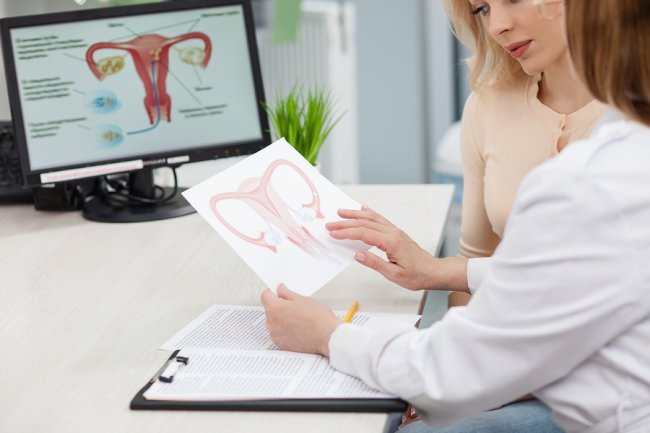3 Questions You Should Ask Your Gynecologist Every Year During Your Annual

Your annual trip to the gynecologist is just around the corner, and you are already cringing at the thought of the pending awkwardness and embarrassment. But annual exams are about more than just answering routine questions while attempting to avoid eye contact. These crucial check-ups can detect potential problems early and help you develop habits that will benefit your reproductive health, sexual health, and overall wellness. Your gynecologist is the best resource you have when it comes to female health, so make the most out of your annual exam by asking these important questions!
What Tests or Screenings Should I Have This Year?
Tests and screenings are excellent early diagnostic tools, but they are not performed at every visit. Some tests have certain age recommendations and timing requirements while others are only used if certain risk factors are present. For example, mammograms that check for breast cancer are not recommended before age 40 and Pap smears that check for cervical cancer should only be done every 3 years. Ask your doctor if you are due for any tests this year, and if so, find out the specifics.
Is This Normal?
Unless you are an expert on women’s health, you have probably had a situation over the past year that made you stop and wonder, “Hmmm, is that normal?”. Don’t worry, you are definitely not alone! You know your body best, so if you have noticed any recent changes or feel that something just isn’t right, you should bring it up to your doctor. Some common topics may include:
- Vaginal Itch
- Pain during sex
- Urinary incontinence
- Vaginal odor
- Hot flashes
- Painful periods
- Irregular menstrual cycles
- PMS
If you are worried about itching down there or why sex hurts sometimes, your gynecologist can help set your fears at ease.
What Else Can I Do to Improve My Female Health?
Even if you are in good shape, there may be ways to further optimize your intimate health. Just doing a quick internet search will bring up lots of recommendations for supplements and intimate exercise equipment (yes, it’s a thing!), but that does not necessarily make them safe to use. Some supplements can affect birth control efficacy or cause issues like bleeding or infection if you forget to list them under ‘medications’ on pre-op surgery forms. Remember to check with your gynecologist before trying anything new. Other things to discuss with your gynecologist:
- Self-breast exams
- Genetic testing
- Birth control options
- Fertility issues
- Family planning
- Menopause
- Kegels
With more than 35 years of experience in women’s health services, you can trust the excellent doctors at Women’s Healthcare Associates for sound advice, accurate assessments, and high-quality services. Our courteous staff is happy to answer your questions and address your concerns, and we always make your comfort our top priority. If you would like to schedule your next annual exam, contact our caring and compassionate doctors today!
Please Read:
- - Effective 9/15/2022, Masks are highly encouraged, but not mandatory.
- - If you are experiencing any flu/cold/COVID like symptoms, you will be required to wear a mask.
- - At this time, we are only allowing ONE ADULT to attend the appointment with the patient. We are not allowing anyone under the age of 18
*Please note, if you bring more than one visitor or if you bring a visitor under the age of 18, they may be asked to wait outside of the waiting room or you may be asked to reschedule your appointment*

